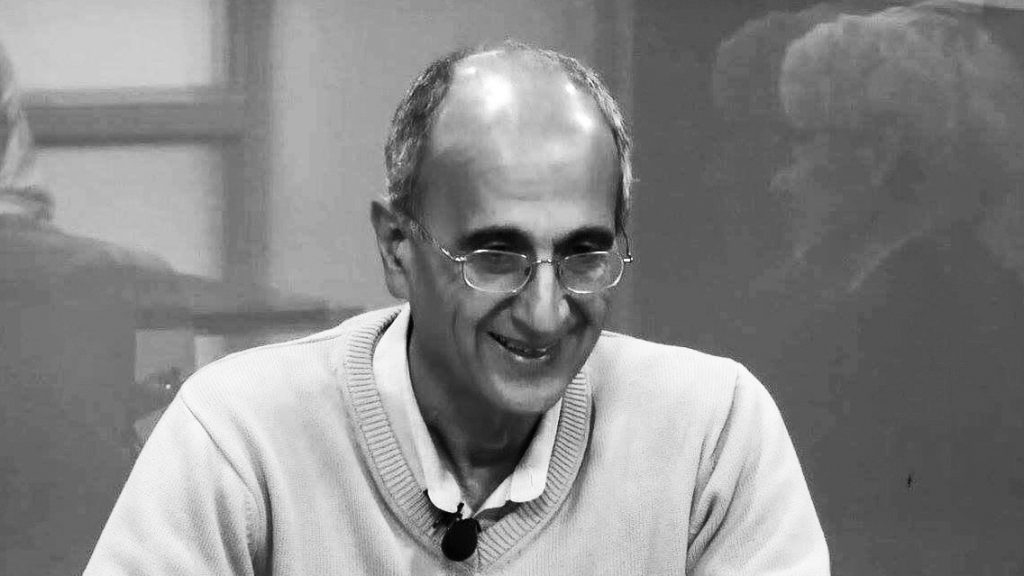Clear Signs of State Cover-Up in Prison Death of Iranian-Canadian Academic in Iran

Distraught Family Under Enormous Pressure to Bury Body Quickly and Not Speak Publicly About the Death
February 12, 2018—The family of the Iranian-Canadian academic, Kavous Seyed-Emami, whose death in custody in Iran was announced on February 9, is under intense pressure to immediately bury Seyed-Emami in a private funeral—without receiving any independent and medically corroborated information on the cause of his death—and to remain silent regarding the death.
Seyed-Emami died under highly suspicious circumstances while in detention in Evin Prison. The authorities are calling his death a suicide—the third death in prison that has been labelled a suicide in recent days despite near universal doubts regarding the veracity of such claims.
“Iran’s judiciary must allow an independent and transparent autopsy of Kavous Seyed-Emami’s body in order for the family and the public to know how he died,” said Hadi Ghaemi, executive director of the Center for Human Rights in Iran (CHRI).
A relative living abroad who is aware of the details of the case told CHRI that Seyed-Emami’s family told the authorities that they wanted an independent autopsy. The authorities reportedly told the family that they would do an autopsy, but as of the evening of February 11, it is not clear that one has been done and no results providing any information on the cause of death have been released to the family.
“You cannot be both the accused and the investigator and expect people to believe your conclusion,” said the relative.
CHRI calls upon the authorities in Iran to:
- Allow an independent autopsy to be conducted, the results of which will be made public.
- Carry out any request for a full and independent investigation into Seyed-Emami’s death.
- Allow the family to conduct funeral and memorial services as per its own wishes.
- Immediately end all pressure on the family to remain silent.
- Cease all other intimidation tactics which include police surveillance of the family.
“Claims that Seyed-Emami’s death was a suicide have no credibility whatsoever. This is a prison system out of control and a Judiciary that is actively colluding in a massive cover-up,” said Ghaemi.
“The authorities’ remarks about the case from start to finish and the pressure they are putting on the family leaves no doubt that there is a concerted state cover up,” he added.
Sources close to the family have said that Seyed-Emami’s family is under constant surveillance, with police posted at the house and that the family is under enormous pressure not to speak to anyone about the case and to quickly bury the body without any public funeral or memorial service.
There are worries that people close to the case will be subjected to forced statements that confirm the state narrative of the events surrounding Seyed-Emami’s death. Iran has a long and documented history of forcing individuals to make false statements and confessions.
In a statement earlier on February 11, Tehran’s chief prosecutor said that Seyed-Emami committed suicide due to confessions made against him: “This person was one of the accused [environmental activists] and given he knew that there is a torrent of confessions against him and he confessed himself, unfortunately he committed suicide in prison.”
The prosecutor’s incredulous claim of knowing the reason for an individual’s alleged suicide casts further doubt on what can only be described as the state’s increasingly desperate attempts to cover up the events leading to the death of Seyed-Emami.
The Judiciary has told the family they will receive the body on Tuesday morning on the condition that they immediately and quietly bury him, according to the relative abroad. A funeral is planned for Tuesday morning in the village of Amameh in the mountains north of Tehran.
A steady procession of friends, family, students and colleagues visited the family home on Monday under the surveillance of police officers stationed near the house.






